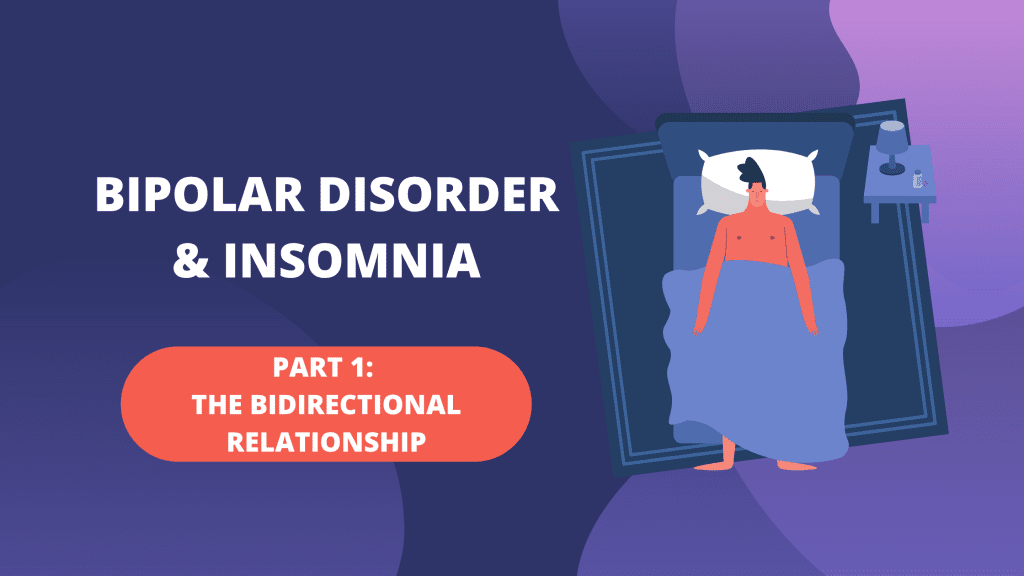The Bidirectional Relationship Between Bipolar Disorder & Insomnia

Bipolar & Insomnia
Bipolar disorder and insomnia often go hand in hand, creating challenges for individuals trying to manage their mental health. Understanding the connection between these two conditions—and their bidirectional relationship—can help people take steps toward better sleep and mood stability. Let’s explore how bipolar disorder affects sleep, why insomnia is so common, and what can be done to improve sleep quality.
Insomnia is a common sleep disorder characterized by difficulty falling asleep, staying asleep, or waking up too early. In the case of bipolar disorder, chronic insomnia persists for months or even longer.
For more guidance on bipolar disorder, check out our book and masterclass to reclaim control of your life. You can also check out our free resources.
How Does Bipolar Disorder Affect Sleep?
Sleep problems are common in bipolar disorder, and they occur during all phases of the condition; however, insomnia is not a necessary symptom:
- Hypomanic/Manic Episodes: People often feel a reduced need for sleep and may stay awake for days without feeling tired. This lack of sleep can worsen mania.
- Depressive Episodes: Insomnia or hypersomnia (excessive sleeping) is typical. Individuals may struggle to fall asleep or wake up too early.
- Between Episodes: Even when mood symptoms seem under control, up to 70% of people with bipolar disorder experience ongoing insomnia.
The Bidirectional Relationship Between Bipolar Disorder and Insomnia
The connection between bipolar disorder and insomnia isn’t one-sided—it’s bidirectional. This means that while bipolar disorder can lead to sleep problems, poor sleep can also trigger or worsen bipolar symptoms like mania or depression. For example:
- Sleep deprivation might cause a manic episode by disrupting neurotransmitters and circadian rhythms.
- Evening negative moods can lead to difficulty falling asleep, which then worsens mood the next day.
This cycle of disrupted sleep and heightened symptoms makes managing both conditions even more important.
Why is Sleep so Important?
Sleep plays a critical role in regulating mood. When sleep is disrupted, it can lead to emotional instability and increase the risk of relapse into manic or depressive episodes. Research shows that shorter sleep durations are linked to worse symptoms like irritability, anxiety, and depression.
Additionally, bipolar disorder often disrupts the body’s internal clock (ie the circadian rhythm), which controls sleep-wake cycles. This can make it even harder for individuals to maintain consistent sleep patterns.
Final Thoughts
The key point in this post is to really understand the bidirectional relationship between bipolar disorder and sleep. In other words, the chicken and the egg can come first in this pairing.
We are going to discuss tips and treatment for the in the next blog post. Stay tuned!


